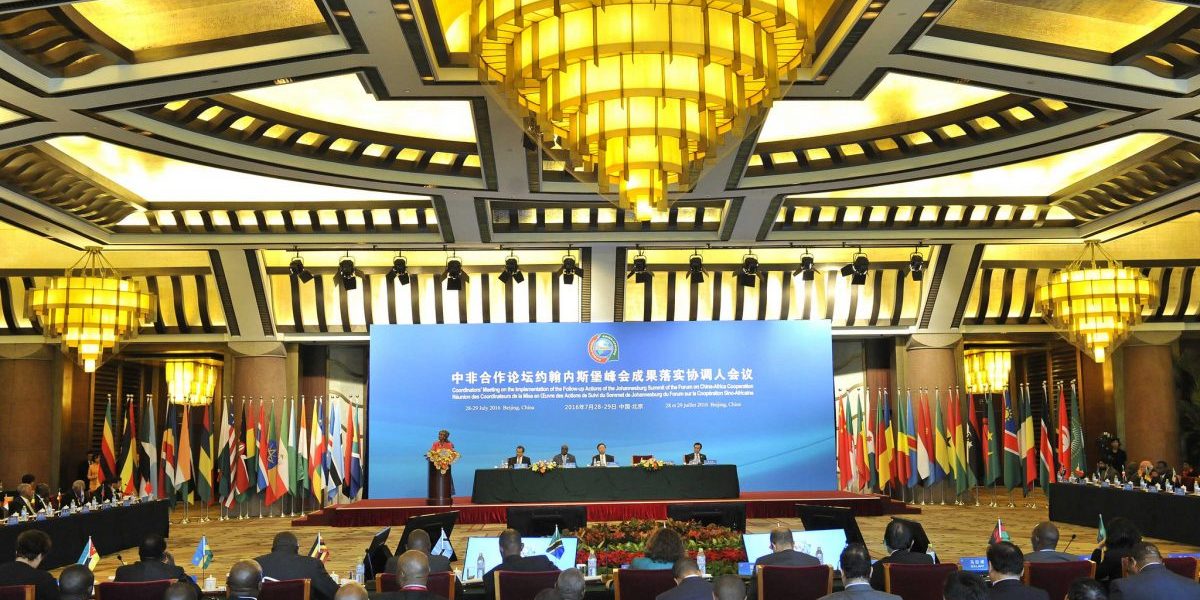Once opposed to any form of international intervention in the domestic affairs of states, the Chinese government is becoming an active participant in UN peacekeeping, providing over 7500 military observers, engineers, medical teams and other specialists in support of peace and stability. Indeed, since 1990 China has sent troops to 15 UN peacekeeping missions ranging from East Timor to Western Sahara, making it the largest contributor among the five permanent members of the Security Council.
Sensitive to the precedents that international peacekeeping could set for its own domestic situation, in order for China to support any form of international intervention three requirements have to be in place: there must be UN authorization, respect sovereignty, and such action must be at the invitation of the target state. Despite these strictures, the scope for Chinese involvement in peacekeeping has been gradually expanding both in terms of the numbers of personnel and the activities they engage in. Between 1993 and 1994 Beijing sent a group of military observers to join UNOMOZ in Mozambique and in 2003 the Democratic Republic of Congo received 218 peacekeepers from the People’s Liberation Army, the first significant deployment of Chinese personnel in Africa under the UN banner. Since 2003 China has contributed to the peacekeeping mission in Liberia with six detachments of troops and engineers, the latest with a total of 2,800 peacekeepers.
Beyond China’s expanding role in peacekeeping operations, Beijing has become a more active participant in the UN Security Council. Until recently, China’s position in the Security Council was one of studied passivity, frequently abstaining from UNSC resolutions that would interfere with a country’s sovereignty and territorial integrity. China has only used its veto on five occasions: against Bangladesh and on the Middle East question in 1972, on Taiwan-related issues towards Macedonia (1997) and Guatemala (1999), and in a rare double veto with Russia on Myanmar (2007). From this status as non-participant, China has slowly become more involved in the Security Council, voting in 1981 for the extension of a UN peacekeeping force in Cyprus, and agreeing to send Chinese civilians to help monitor the Namibian transition to independence in 1989. Despite these cautious steps towards activism, nevertheless between 1990 and 1999 China did abstain 41 times when contentious issues were at the negotiating table like the use of force, humanitarian intervention, and the establishment of international criminal tribunals.
It was China’s status as emerging great power that instigated a change in this approach. Conscious that it needed to behave as a responsible power commensurate with its new standing, Beijing has embarked on a period of unprecedented international activism with African being a key proving ground. In Sudan, after three long harrowing years of negotiations characterised in part by Beijing’s defence of the regime in Khartoum, China voted along with the Security Council in favour of a decisive resolution that empowers UN troops to use “all the necessary means” to protect themselves, defend civilians, and secure the safe passage of aid. Resolution 1769 is significant because the 26,000 troops and police being deployed to the region are mandated under Chapter VII of the UN Charter, which permits the use of force. This is a clear indication that China is changing the contours of its non-interference policy, although the resolution is ostensibly with Sudanese government acquiescence. Another important development occurred while China chaired the Security Council in April 2006, UNSC Resolution 1672 was passed imposing sanctions on four Sudanese individuals – including government officials – accused of being involved in atrocities. Though Beijing abstained at the time of the vote, it nonetheless allowed the body to pass targeted sanctions, something China had always been hostile to in the past.
As with all the major powers on the Security Council, the issues of the day are mediated by the crucible of self-interest. In China’s case, its changing approach to participation in UN does not diminish its formal commitment to the principle of non-intervention nor any decisions to provide diplomatic cover for regimes like that of Robert Mugabe. This suggests that although China is highly unlikely to pursue a policy that contravenes it non-interventionist stance it will however make concessions when faced with higher stakes. With its reputation as a ‘responsible stakeholder’ in the international system amongst Western governments at risk due to the conflict in Darfur, Beijing has demonstrated that it could use its influence with unsavoury states to comply with the UN. It will be interesting to see if this precedent is extended to other cases in Africa and further a field like that of Burma.
At the same time, this new Chinese assertiveness carries with it considerable costs and pitfalls. The pointed declaration by one of Darfur’s rebel groups that incoming Chinese peacekeepers would themselves be targeted reflects their belief that Beijing has been a late – and fundamentally reluctant – convert to international action in Sudan. The growing frequency with which Chinese technicians, aid workers and even businessmen are targeted by dissident elements within Africa signals that Chinese involvement, even when framed within a UN mission, is not always perceived as benevolent. Though ‘unburdened’ by the open media found in democracies, nonetheless the Chinese government has to take cognisance of its own elite, business and informed domestic opinion in forging its African policy. How this increasingly complex, and sometimes negative reaction to deepening engagement, will impact on China’s activism in Africa remains to be seen.








